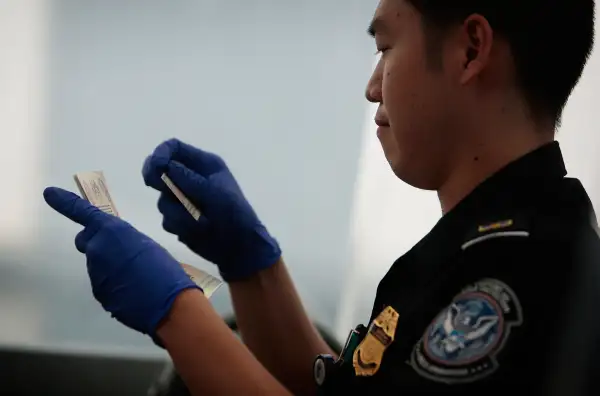Reminder: These States May Not Let You Use Your Driver’s License to Fly Domestically Next Year

Flying domestically? You may need to show your passport to board a flight in some states starting early next year.
Millions of Americans who live in a handful of states could soon no longer be able to get through an airport security checkpoint using just their driver’s license, thanks to an obscure federal law called the Real ID Act.
The measure targeted terrorism when it was enacted more than a decade ago. Under the new standards, each state must change how it issues driver’s licenses and personal identification cards. Travelers living in states that have not yet made those changes — or have not yet been granted an extension — will need to show their passports or other acceptable forms of identification to board their flights in 2018, according to Homeland Security.
As of Friday, more than two-dozen states and U.S. territories were not yet deemed in full compliance of the Real ID Act. Seventeen states have been granted extensions until Oct. 10, 2018, meaning residents are allowed to use their current driver’s license until that grace period is over:
- Washington
- Oregon
- California
- Alaska
- Idaho
- Montana
- North Dakota
- Minnesota
- Oklahoma
- Kentucky
- Virginia
- South Carolina
- Pennsylvania
- New Jersey
- Massachusetts
- New Hampshire
- Maine
But the federal government is still reviewing extension requests for six additional states and five U.S. territories:
- Michigan
- Illinois
- Missouri
- Louisiana
- New York
- Rhode Island
- Puerto Rico
- Guam
- The U.S. Virgin Islands
- American Samoa
- The Northern Mariana Islands
Extensions are granted on an “ongoing basis,” according to Homeland Security spokeswoman Justine Whelan. If the extensions are not granted, residents there will not be able to fly domestically with their driver’s license starting Jan. 22, 2018. By 2020, the final deadline for implementation, all travelers over 18 will need Real ID-compliant licenses or other acceptable forms of identification, like U.S. passports, permanent resident cards or border crossing cards.
The federal government says having more stringent standards in issuing state identification cards will prevent terrorists from getting their hands on fraudulent documents. The Real ID Act was passed in 2005 after the 9/11 Commission issued its report on terrorist attacks. “For terrorists, travel documents are as important as weapons,” the Commission noted at the time. The measure was stalled until 2014, when the federal government began implementing it in phases.